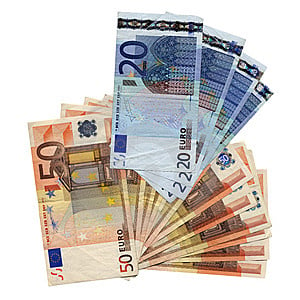 The euro’s chance of survival has since the onset of the debt crisis been up for debate. The impossible seemed an alarmingly realistic alternative: The abandonment of the euro in the face of unpopular austerity measures and bailouts. This led to questions regarding the viability of the EU as a whole.
The euro’s chance of survival has since the onset of the debt crisis been up for debate. The impossible seemed an alarmingly realistic alternative: The abandonment of the euro in the face of unpopular austerity measures and bailouts. This led to questions regarding the viability of the EU as a whole.
The March 25 EU summit, resulting in a deal to make the bailout fund a permanent feature of the EU, and the euro-plus-pact (including the 17 countries that use the single currency plus five others), goes a long way in banishing the possibility of a total euro-meltdown. With the euro-plus pact, the eurozone’s odd construction – a common currency without adequate fiscal regulation to support a common currency – took a step in the direction of real fiscal integration. The pact calls for a partial harmonization of fiscal policy. Under the pact, participants will meet once a year to agree on common targets that will be implemented at the national level.
Europe’s leaders have proven their determination to maintain the euro in the face of popular dissatisfaction. On the one hand; for the hard worst off countries, Ireland, Greece, and Portugal, good old fashioned devaluation of a national currency for a time could have seemed a tempting alternative to the austerity measures dished out by the ECB, IMF, EC troika, in charge of overseeing the fiscal policies of those countries unfortunate enough to qualify for the bailout. On the other hand; the well-off countries, Germany in particular, are none too pleased with picking up the tab for what they consider a bunch of deadbeats.
Considering this backdrop, the determination of Europe’s leaders’ to maintain and strengthen the euro and its associated structures is striking. This has been the case, regardless of the necessity of national leaders to placate their electorates’ euro-skepticism. A case in point being Merkel’s stickling on the terms for Germany’s payments into the bailout fund while local elections loomed. These elections, incidentally, did not go Merkel’s way. In 2013 Germany is set for a federal election, undoubtedly also an event that played into Merkel’s handling of the negotiations. Nevertheless, in the aftermath of the euro-pact negotiations, few would now argue that the euro isn’t here to stay.
Whether Europe’s leaders truly are enthusiastic about the pact is beside the point. They fear being left out of the decision making process – hence non-euro countries like Denmark opting in, while the outsiders, like Sweden, show a definite interest in joining the pact at a later date.
The ever closer fiscal union implied in the euro-plus pact does of course not please everyone. The Czech Republic’s president Vaclav Klaus for one has – yet again voice his mistrust in Brussels. “The Brussels summit on 25 March was not about anything else but the further integration of Europe towards fiscal … union”, says Klaus. And “It was a radical reduction of the sovereignty of other EU countries.” The euro skeptical Czech president fears that fiscal union ultimately will lead to political union.
Not that the pact means that all is well. Many a cloud looms on the horizon. Portugal’s credit worthiness was recently downgraded to BBB- by Standard & Poor’s – only one notch above a junk rating. In addition, the Portuguese government was obliged to step down when parliament refused to pass an austerity package. Many say Portugal is next in line for a bailout. Meanwhile Spain’s creditworthiness hangs in the balance. In short, the euro-plus pact doesn’t look like the final step in the rescue plan to save the euro that many had hoped for. What the euro-pact does mean, is that Europe’s economic future will succeed, or fail, with the euro – not without it.